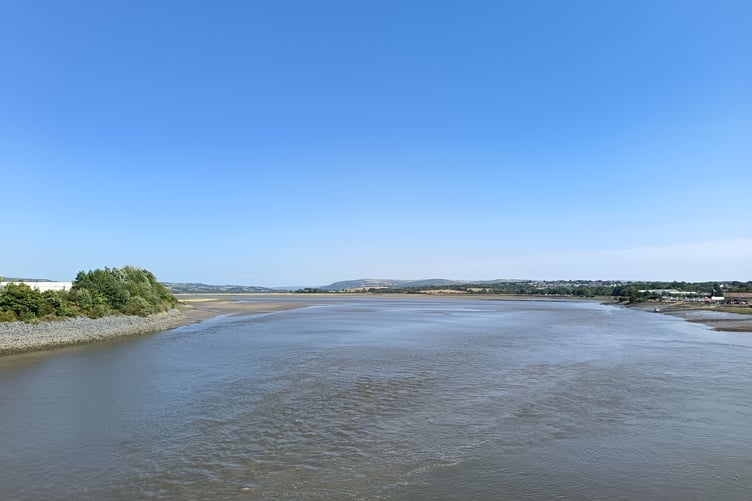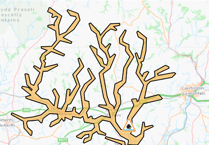SWANSEA and Carmarthenshire councils say they are working out the implications of planning advice issued by Wales’ environmental regulator due to water quality concerns in a protected marine area.
Swansea Council’s planning committee had been due to determine an application this month for 50 affordable homes in Penyrheol, just to the east of the River Loughor. The river estuary forms part of the Carmarthen Bay and Estuaries special area of conservation (SAC).
The committee was told a decision had to be deferred because of recent advice from Natural Resources Wales (NRW) about the effects of nutrient pollution on marine SACs.
The advice followed detailed assessments of 85 habitats and species at 17 marine SACs and special protected areas (SPAs) in Wales. The results, published in June, said nutrient pollution – in the form of dissolved inorganic nitrogen – were leaving just over half of them in “unfavourable condition”. Nutrient pollution comes from sources such as agriculture and domestic sewage.
NRW said there was evidence of “chemical and biological failure” at an area within Carmarthen Bay and Estuaries SAC called Burry Inlet Inner. Similar failures were also identified in two other marine SACs in Wales – Milford Haven Inner, within Pembrokeshire Marine SAC, and Cemlyn Lagoon, within Cemlyn Bay SAC, Anglesey.
Its interim planning advice was published in August. It’s about what councils need to do when considering new developments in catchment areas which drain into marine SACs containing features deemed to be in an unfavourable condition.
Local authorities, it said, should assess potential nutrient discharges from planned developments and ensure there were measures to mitigate them so they didn’t add any further pollution. This is sometimes referred to as nutrient neutrality.
NRW told the Local Democracy Reporting Service that key marine species and habitats were being impacted and that targeted action was required.
“Water quality challenges, particularly those caused by excess nutrients, are placing considerable pressure on our ecosystems,” said an NRW spokesman.
“We fully recognise the significant pressures facing local authorities, particularly around nutrient-related planning decisions. These are complex issues, and NRW is committed to supporting with robust evidence, practical tools, and clear guidance to help inform assessments.”
He added: “We understand this is not a planning issue alone. NRW is working across diverse sectors to reduce nutrient pollution.”
Carmarthenshire Council said it was working with NRW, the Welsh Government and Dwr Cymru (Welsh Water) and other affected authorities “to urgently review the implications of the interim guidance and possible mitigation”.
A Swansea Council spokesman said: “Discussions are continuing with NRW and other relevant bodies to fully understand the implications and actions needed.”


.jpeg?width=209&height=140&crop=209:145,smart&quality=75)


Comments
This article has no comments yet. Be the first to leave a comment.